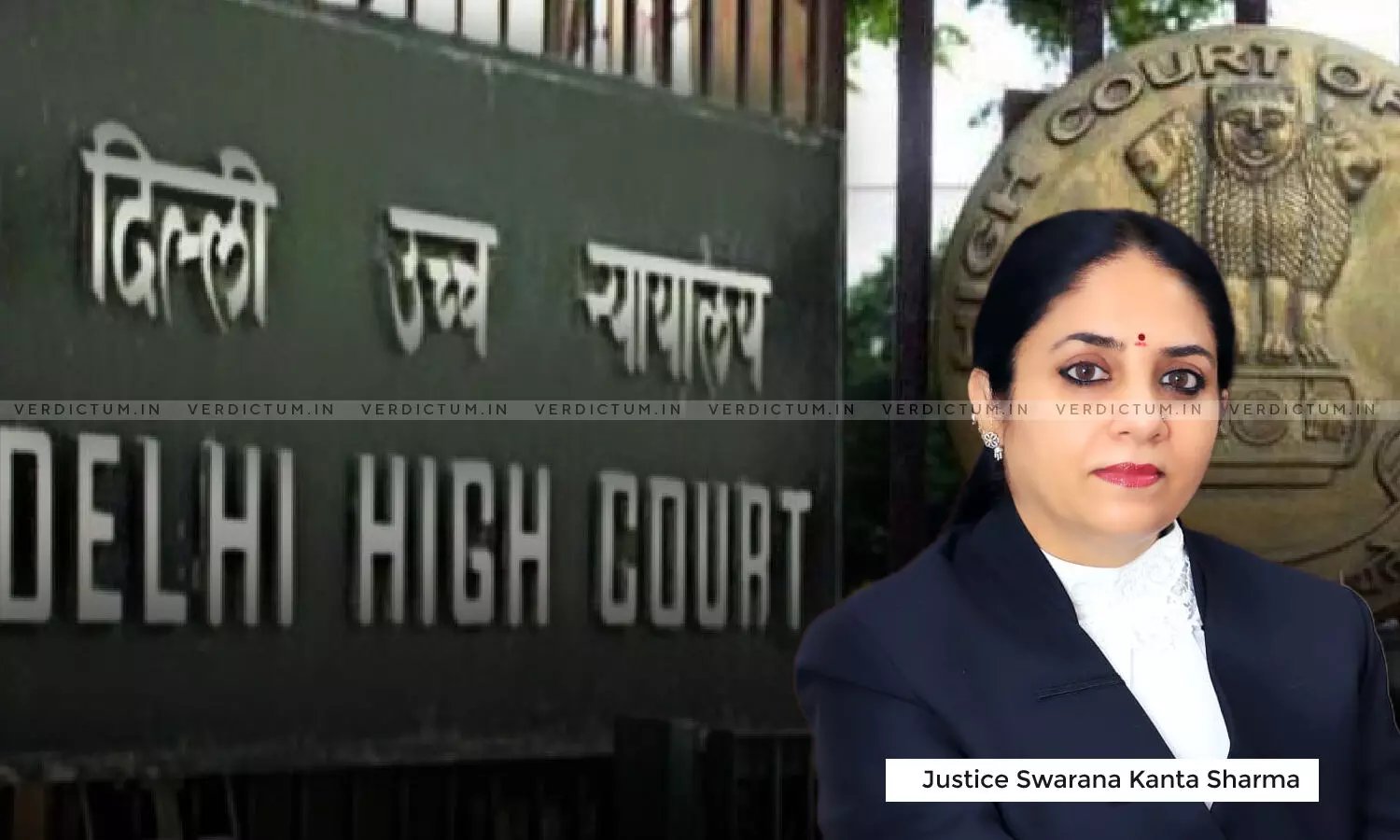
Justice Swarana Kanta Sharma, Delhi High Court
Section 377 IPC Not Applicable To Consensual Oral Sex Between Husband And Wife: Delhi High Court
 |
|The wife alleged non-consummation of marriage but claimed the husband had oral sex with her during their honeymoon.
The Delhi High Court held that Section 377 of the Indian Penal Code (IPC) which criminalizes "unnatural sexual offences"—cannot be invoked against a husband for engaging in anal or oral sex with his wife, provided there is no explicit allegation of lack of consent.
The decision came in response to a petition challenging a trial court's order that had framed charges under Section 377 IPC against a husband. According to the complaint, the wife alleged that although the husband failed to consummate the marriage, he had engaged in oral sex with her during their honeymoon. She also levelled serious accusations of rape against her father-in-law and physical assault against her brother-in-law. However, the trial court discharged all other accused except the husband, against whom it found a prima facie case under Section 377.
A Bench of Justice Swarana Kanta Sharma emphasized that within the framework of a marital relationship, the law presumes implied consent for sexual intercourse and related acts, including oral and anal sex.
The Court added, "Thus, in the considered opinion of this Court, there is no basis to assume that a husband would not be protected from prosecution under Section 377 of IPC, in view of Exception 2 to Section 375 of IPC since the law (amended Section 375 of IPC) now presumes implied consent for sexual intercourse as well as sexual acts (including anal or oral intercourse within a marital relationship)."
The High Court set aside the trial court’s decision, finding that the woman had not specifically claimed that the act was non-consensual. The Bench stressed that under existing legal standards, consensual oral or anal sex between adults conducted in private is not punishable.
"It is pertinent to note that the complainant and the petitioner herein are legally wedded to each other, and the allegations arise from a matrimonial dispute. Importantly, the complainant has not specifically alleged that the act of oral sex was performed against her will or without her consent," the Court stated.
The Court further held that the allegations lacked specificity, and the material on record did not substantiate the necessary elements of the offence under Section 377.
The Bench also noted that its interpretation was in line with the landmark Supreme Court judgment in Navtej Singh Johar v. Union of India, where Section 377 was read down to decriminalize consensual homosexual acts among adults.
Concluding that there was no prima facie case against the petitioner, the Court declared the trial court’s order legally unsustainable and quashed the charges.
Cause Title: X v. The State NCT of Delhi, [2025:DHC:3626]
Appearance:
Petitioner: Advocates Mohd Mustafa, Ratnesh Tiwari, Arpita Biswas, and Maroof
Respondent: Additional Public Prosecutor Rajkumar